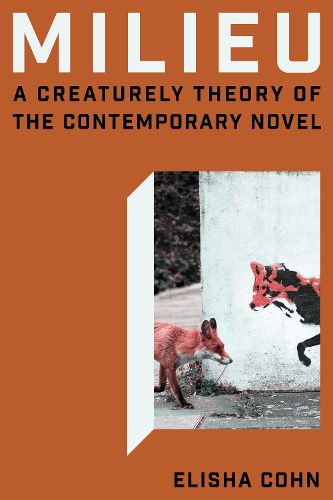Readings Newsletter
Become a Readings Member to make your shopping experience even easier.
Sign in or sign up for free!
You’re not far away from qualifying for FREE standard shipping within Australia
You’ve qualified for FREE standard shipping within Australia
The cart is loading…






In this creaturely theory of the novel, Elisha Cohn rethinks the status of animals in recent global fiction, arguing that literary representation of animals should matter to any reader invested in the novel as a form, and showing how literary style makes knowable our imperiled multispecies worlds.
Cohn argues that the animal lives of contemporary fiction move beyond allegories of globalization's fracture of subjectivity by emphasizing the creaturely dimensions of narrative. This shift in focus registers through recent fiction's fascination with milieus: environments made perceptible through sentience that humans share with other creatures. Showing how theories of milieu-from Jacob von Uexkuell, George Canguilhem, and Sylvia Wynter to recent studies in comparative cognition-converge with and are conceptually indebted to Indigenous and Black ontologies, Cohn argues that the milieu not only explains the centrality of animals to contemporary fiction, but also promotes dialogue across disciplines invested in anti-hierarchic accounts of embodied life. Each chapter foregrounds formal resonances in texts from the mid-1990s through the present, including work by Tea Obreht, Yoko Tawada, NoViolet Bulawayo, Sigrid Nunez, Jesmyn Ward, Linda Hogan, Lucy Ellmann, Amitav Ghosh, and Aminatta Forna. Throughout, Cohn compellingly argues for the centrality of narrative voice in avoiding, deferring, or complicating modes of figuration and critical interpretation that confirm human privilege.
$9.00 standard shipping within Australia
FREE standard shipping within Australia for orders over $100.00
Express & International shipping calculated at checkout
In this creaturely theory of the novel, Elisha Cohn rethinks the status of animals in recent global fiction, arguing that literary representation of animals should matter to any reader invested in the novel as a form, and showing how literary style makes knowable our imperiled multispecies worlds.
Cohn argues that the animal lives of contemporary fiction move beyond allegories of globalization's fracture of subjectivity by emphasizing the creaturely dimensions of narrative. This shift in focus registers through recent fiction's fascination with milieus: environments made perceptible through sentience that humans share with other creatures. Showing how theories of milieu-from Jacob von Uexkuell, George Canguilhem, and Sylvia Wynter to recent studies in comparative cognition-converge with and are conceptually indebted to Indigenous and Black ontologies, Cohn argues that the milieu not only explains the centrality of animals to contemporary fiction, but also promotes dialogue across disciplines invested in anti-hierarchic accounts of embodied life. Each chapter foregrounds formal resonances in texts from the mid-1990s through the present, including work by Tea Obreht, Yoko Tawada, NoViolet Bulawayo, Sigrid Nunez, Jesmyn Ward, Linda Hogan, Lucy Ellmann, Amitav Ghosh, and Aminatta Forna. Throughout, Cohn compellingly argues for the centrality of narrative voice in avoiding, deferring, or complicating modes of figuration and critical interpretation that confirm human privilege.